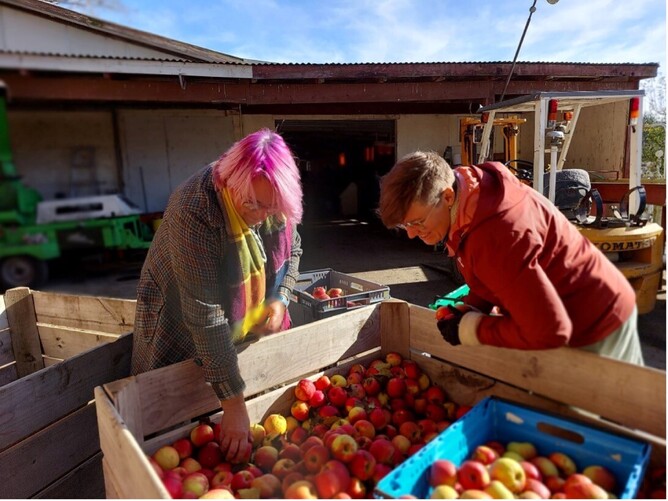While we search for a replacement for Amber, we are making sure that the work programme she started continues.
The Waikato Wellbeing Project’s Kai Challenge has an ambitious target of reducing child poverty in the Waikato region to less than 1% and eliminating child hunger by 2030. Our goal is that: “Our children can thrive because none are hungry at school or cold at home. They can afford to participate in social, artistic, cultural and sporting activities.”
People and groups working at the forefront of the food insecurity crisis are eager to shift the focus from crisis response towards systemic change. In response to this message from our stakeholders, the Kai Challenge has developed a work programme to support the shift from crisis response to planned resilience in our regional food system.
This shift is essential because the demand for crisis food provision is increasing. This shift in the conversation is also supported nationally, with public petitions for a national food strategy and a recent report from the Public Health Advisory Committee recommending the same.
Supporting a Systems Change Conversation
‘Food system’ is a now commonly used expression, but if we are asked to describe what it means, or more importantly how it works, it is easy to get lost amid the scale, scope and intricacies. The first step towards systems change is to understand the system you are seeking to change.
To work together to adjust or dismantle the underperforming or maladjusted systems, or grow, develop or replicate the promising innovations, we need a shared understanding of what those are and who is involved in creating and maintaining them. To have a productive conversation about systems, we need a shared language to discuss the system, and a group of people from the breadth of that system who can take the work forward.
By articulating the systems we are seeking to change, adjust, dismantle, grow, develop or replicate, we can progress these conversations drawing on a shared knowledge of how they work, and who can make the necessary changes. This will be a long-term, wide-reaching conversation towards achieving food security in our region. This work programme is comprised of three projects:
· A baseline survey of the measures and indicators currently available to assess food security in our region
· An analysis of the regions’ ‘foodshed’ – that is, a measure of our nutritional needs and outputs across the region
· Documenting a variety of perspectives on our regional food system, from growers to consumers
Baseline Survey
We have contracted StrategEase Limited to complete the baseline survey. The key outputs of their work will be:
1. Review of existing and additional information sources to develop an appropriate framework and conceptual model for positioning food security within the region’s food production, distribution and consumption system:
a) Explore a Te Ao Māori approach in the course of developing a systems map of food availability and security within Waikato’s food system.
b) Engaging with WWP’s Kai Challenge Manu Taki to seek input on the systems map based their experiences and examples of food insecurity experienced by vulnerable families/households. For this agree the five or so main types and sources of data to explore that will underpin an indicators/monitoring programme. Criteria for selecting the focus areas will need to be agreed at this stage.
c) Potential indicators may require collating data subsets from multiple sources (e.g. government agencies and/or community organisations active in the food insecurity domain). Data may include administrative data (e.g. MSD food grants) programme data (food bank usage, food in schools programmes), market information on the structure of local food production and distribution system, economic data (local costs of a healthy food basket, local household income profiles and demographic data – noting however, actual 2023 Census data may not be available until after the project is completed.
d) Efforts will be made to identify how a more coherent and consistent approach to capturing and framing data on food security may be achieved on a durable basis.
2. Engagement with key informants in Waikato to obtain data and insights relevant to the agreed five or so main focus areas:
a) Key informant interviews will be targeted to identify: - examples of local food distribution systems including the marginal or intermediate agents in these - the extent to which these systems exacerbate or ameliorate food insecurity - potential for systems disruptions either caused by external shocks (such as COVID) or policy or activist interventions - what data these key informants generate or can generate as part of their work which could feed into a regional indicators/monitoring programme - the prospect that these key informants will contribute data and information to such a programme and the incentives required for this.
b) Key informants will include Ngāti Haua and others identified from engaging with members of the Kai Challenge Kaitiaki Advisory Board. Key informants may be based on specific towns where food insecurity is known to be more problematic (e.g. Huntly, Paeroa, Tokoroa and Te Kuiti and perhaps a Hamilton suburb such as Fairfield).
3. Populating a WWP food insecurity framework with data, graphs and narrative as a draft report which will then be subject to feedback from the Kai Challenge Manu Taki
4. Producing a final report.


